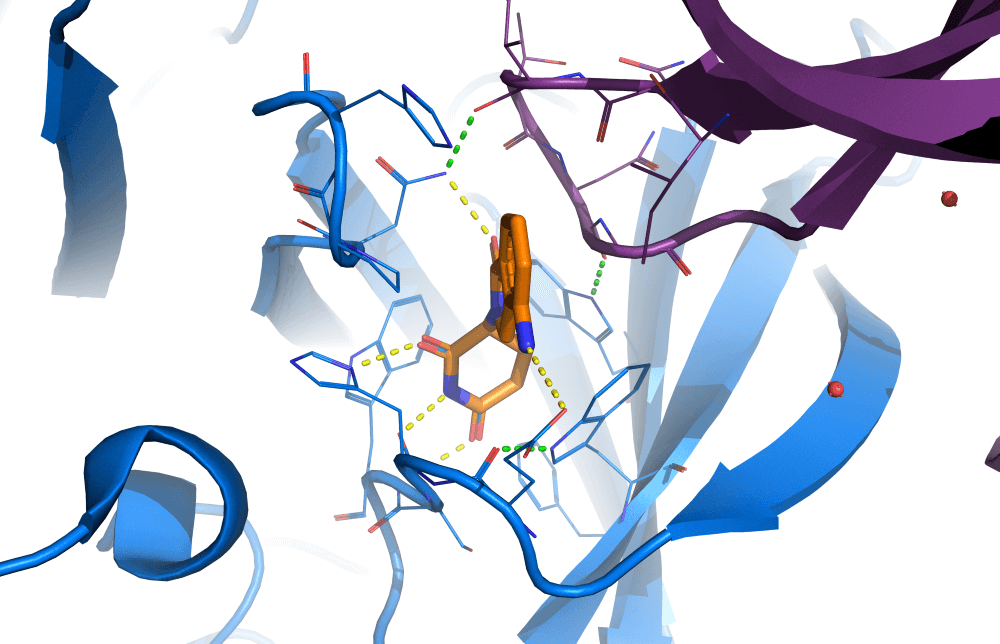Molecular Glues
Molecular glues are small molecules used in targeted protein degradation that act as adhesives by making two proteins bind to each other.
By first binding one of the proteins, a new molecular surface is created that is then complementary to the surface of the second surface – resulting in the binding of the two proteins, which otherwise would never interact with one another.
When used in targeted protein degradation, molecular glues bring about the binding of a ubiquitin ligase to a new target protein, often referred to as a neo-substrate.
Recent examples of molecular glues include anticancer aryl-sulfonamides1,2 such as Indisulam and the CDK inhibitor CR-83.
Molecular Glues vs PROTACs
Unlike proteolysis targeting chimera protein degraders, which work similarly, molecular glues are made up of a single part.
They also have a significant advantage over PROTAC® protein degraders: molecular glues adhere more closely to conventional small molecule design principles and more easily abide by Lipinski’s rule of five.
Molecular glue compounds are also expected to have higher membrane permeability and better uptake than PROTAC® protein degraders and are considered much less likely to pose a significant challenge for penetration of the blood-brain barrier – important for the treatment of any CNS indications.
Plus, molecular glues are likely to be synthetically more tractable, with a more straightforward structure-activity relationship (SAR) than proteolysis targeting chimeras.

A closeup of 5fqd, the crystal structure of a molecular glue degrader complex: DDB1-CRBN bound to lenalidomide and CK1α
Getting you out of a bind
We know all about the challenges involved in identifying molecular glues, but we’ve also got the technology, tools and expert knowledge to overcome them.
Sygnature’s state-of-the-art HTS, MTS and FBDD compound libraries have great potential to support finding small molecules eliciting molecular glue effects.
Running an HTS, MTS or fragment screen with our libraries could lead to the identification of hits that bring a ubiquitin ligase and a protein of interest together. If successful, the identification and development of designer molecular glues would be a game-changer in the field of targeted protein degradation.
Thanks to our excellent skills in biophysics, biochemistry, and cell biology, as well as our capabilities in medicinal and computational chemistry and our hit-finding expertise, we are well-placed to support projects focusing on molecular glues.
If you’d like to explore the possibilities of molecular glues and how we could help in your drug discovery project, get in touch.
